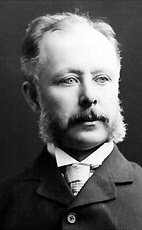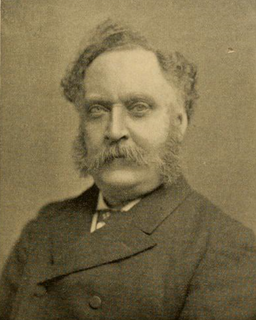
Simony is the act of selling church offices and roles or sacred things. It is named after Simon Magus, who is described in the Acts of the Apostles as having offered two disciples of Jesus payment in exchange for their empowering him to impart the power of the Holy Spirit to anyone on whom he would place his hands. The term extends to other forms of trafficking for money in "spiritual things".
Freethought is an epistemological viewpoint which holds that beliefs should not be formed on the basis of authority, tradition, revelation, or dogma, and that beliefs should instead be reached by other methods such as logic, reason, and empirical observation. According to the Oxford English Dictionary, a freethinker is "a person who forms their own ideas and opinions rather than accepting those of other people, especially in religious teaching." In some contemporary thought in particular, free thought is strongly tied with rejection of traditional social or religious belief systems. The cognitive application of free thought is known as "freethinking", and practitioners of free thought are known as "freethinkers". Modern freethinkers consider free thought to be a natural freedom from all negative and illusive thoughts acquired from society.

The National Secular Society (NSS) is a British campaigning organisation that promotes secularism and the separation of church and state. It holds that no one should gain advantage or disadvantage because of their religion or lack of it. It was founded by Charles Bradlaugh in 1866.

Sir Louis Henry Davies was a Canadian lawyer, businessman and politician, and judge from the province of Prince Edward Island. In a public career spanning six decades, he served as the third premier of Prince Edward Island, a federal Member of Parliament and Cabinet minister, and as both a Puisne Justice and the sixth Chief Justice of Canada.

Joseph Martin McCabe was an English writer and speaker on freethought, after having been a Roman Catholic priest earlier in his life. He was "one of the great mouthpieces of freethought in England". Becoming a critic of the Catholic Church, McCabe joined groups such as the Rationalist Association and the National Secular Society. He criticised Christianity from a rationalist perspective, but also was involved in the South Place Ethical Society which grew out of dissenting Protestantism and was a precursor of modern secular humanism.

John Mackinnon Robertson was a prolific journalist, advocate of rationalism and secularism, and Liberal Member of Parliament in the United Kingdom for Tyneside from 1906 to 1918. Robertson was best known as an advocate of the Christ myth theory.

Leicester Secular Society is the world's oldest Secular Society. It meets at its headquarters, the Leicester Secular Hall in the centre of Leicester, England, at 75 Humberstone Gate.

The following outline is provided as an overview of and topical guide to humanism:
Marshall Jerome Gauvin, best known as Marshall J. Gauvin was a Canadian atheist author and speaker in the freethought movement.

Thomas W. Flynn was an American author, journalist, novelist, executive director of the Council for Secular Humanism, and editor of its journal Free Inquiry. He was also director of the Robert Green Ingersoll Birthplace Museum and the Freethought Trail.

William Whitehouse Collins was a New Zealand Member of Parliament for Christchurch in the South Island.

Charles Watts was an English writer, lecturer and publisher, who was prominent in the secularist and freethought movements in both Britain and Canada.
Justin Trottier is a political activist, former political candidate and founder of Canada's largest social-political movements for secularism and men's issues. He was one of several founding members of several secular organizations such as the Centre for Inquiry Canada in 2007, where he served as National Executive Director until 2011. He also founded the Freethought Association of Canada, which created the 2009 atheist bus campaign where Trottier served as one of the spokespersons. He also founded the Canadian Secular Alliance. In 2011, he was a Green Party candidate in the 2011 Ontario provincial election. Later, Trottier co-founded and has served as the chairman and spokesperson for the Canadian Association for Equality (CAFE), and was heavily involved in CAFE's campaign to open the Canadian Centre for Men and Families in 2014. He currently serves as the Centre's director.

Secular Review (1876–1907) was a freethought/secularist weekly publication in nineteenth and early twentieth-century Britain that appeared under a variety of names. It represented a "relatively moderate style of Secularism," more open to old Owenite and new socialist influences in contrast to the individualism and social conservatism of Charles Bradlaugh and his National Reformer. It was edited during the period 1882–1906 by William Stewart Ross (1844–1906), who signed himself "Saladin."

William Stewart Ross was a Scottish writer and publisher. He was a secularist thinker, and used the pseudonym "Saladin". Between 1888 and 1906 he was the editor of the Agnostic Journal, successor to the Secular Review.
Eunice Kate Watts was a British secularist and feminist writer and lecturer. She was one of the most prominent women active in the British freethought movement in the nineteenth and early twentieth centuries.
The British Secular Union was a secularist organisation, founded in August 1877, primarily as a response to what its founders regarded as the "dictatorial" powers of Charles Bradlaugh as President of the National Secular Society. The founding members were Kate Watts, Harriet Law, George William Foote and Josiah Grimson; George Holyoake had accepted the nomination of Vice President of the National Secular Society so only gave support for the formation. The group adopted the Secular Review as their official paper.
The Congressional Freethought Caucus is a membership organization in the United States House of Representatives established to promote policy solutions based on reason and science, and defend the secular character of government. Representatives Jared Huffman (D-CA), Jamie Raskin (D-MD), Jerry McNerney (D-CA), and Dan Kildee (D-MI) founded the group in April 2018, quickly joined by Pramila Jayapal (D-WA). Huffman and Raskin co-chair the caucus. All 14 members are Democrats.

Austin Holyoake was a printer, publisher, and freethinker. The younger brother and partner of the more widely known George Jacob Holyoake, Austin Holyoake was himself a significant figure in nineteenth century secularism.













